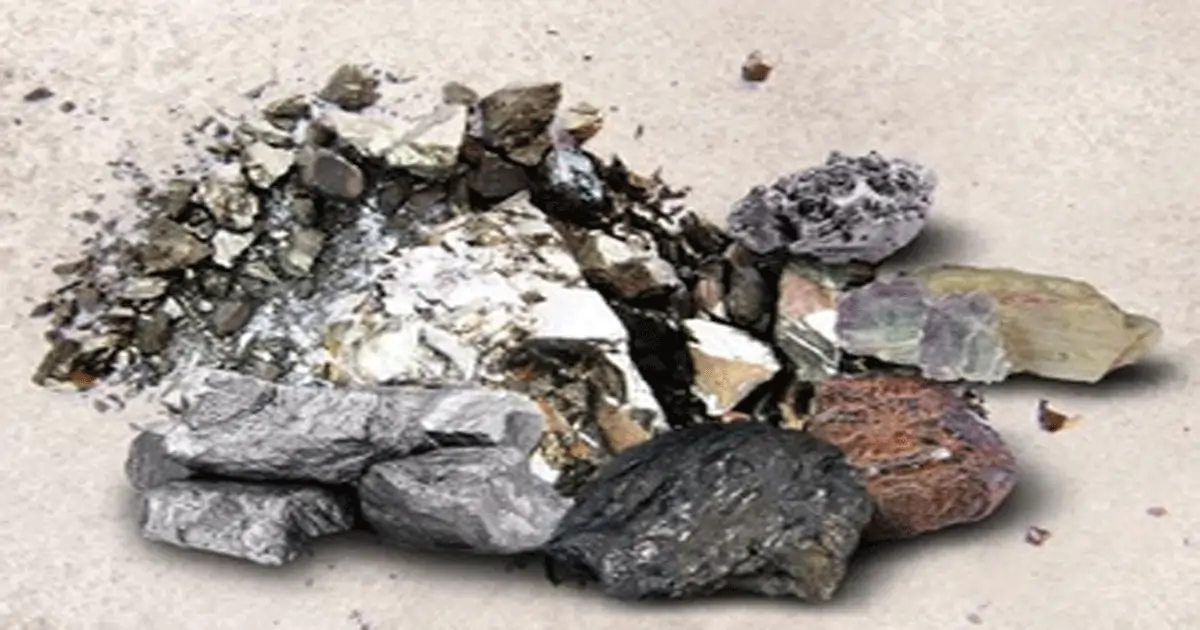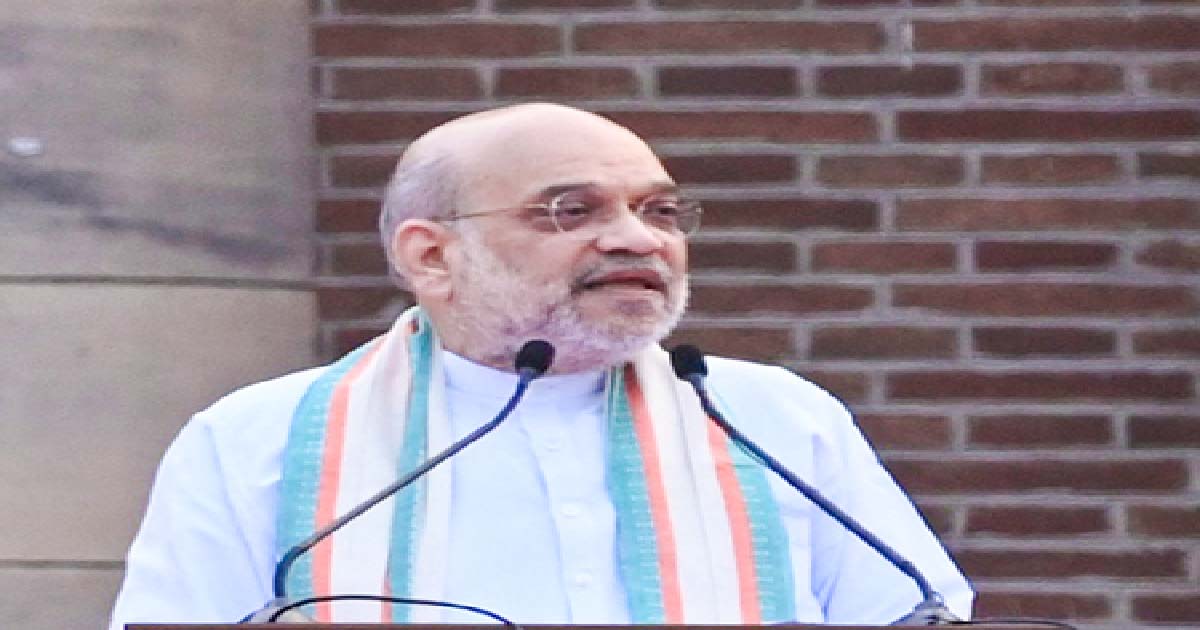Business
Cabinet gives approval for launch of Rs 34,300 crore National Critical Mineral Mission

New Delhi, Jan 29: The Union Cabinet, chaired by Prime Minister Narendra Modi, on Wednesday approved the launch of the National Critical Mineral Mission with an outlay of Rs 16,300 crore and expected investment of Rs 18,000 crore by public sector undertakings (PSUs).
Briefing the media after the Cabinet meeting, Union Minister for Information and Broadcasting Ashwini Vaishnaw said that the mission aims to reduce the dependence on the import of critical minerals and ensure self-reliance.
The National Critical Mineral Mission, approved by the Union Cabinet, will encompass all stages of the value chain, including mineral exploration, mining, beneficiation, processing, and recovery from end-of-life products.
The mission will intensify the exploration of critical minerals within the country and in its offshore areas. It aims to create a fast-track regulatory approval process for critical mineral mining projects, according to an official statement.
Additionally, the mission will offer financial incentives for critical mineral exploration and promote the recovery of these minerals from overburden and tailings.
As part of the Atmanirbhar Bharat initiative, and recognising the indispensable role of critical minerals in high-tech industries, clean energy, and defence, the Indian government has undertaken several initiatives over the past two years to address challenges in the critical minerals sector.
Finance Minister Nirmala Sitharaman announced the setting up of the Critical Mineral Mission in the Union Budget for 2024-25 on July 23, 2024, to establish an effective framework for India’s self-reliance in the critical mineral sector.
The mission aims to encourage Indian PSUs and private sector companies to acquire critical mineral assets abroad and enhance trade with resource-rich countries. It also proposes the development of a stockpile of critical minerals within the country.
The mission includes provisions for setting up mineral processing parks and supporting the recycling of critical minerals.
It will also promote research in critical mineral technologies and proposes setting up a Centre of Excellence on critical minerals.
Adopting a whole-of-government approach, the Mission will work closely with relevant Ministries, PSUs, private companies, and research institutions to achieve its objectives.
Mines and Minerals (Development and Regulation) Act, 1957, has been amended in 2023 to increase the exploration and mining of critical minerals.
Consequently, the Ministry of Mines has auctioned 24 blocks of strategic minerals.
The Geological Survey of India (GSI) has undertaken 368 exploration projects for critical minerals over the past three years, with 195 projects currently underway in FS 2024-25.
For FY 2025-26, GSI is going to take up 227 projects for various critical minerals.
To foster innovation, the Ministry launched the Science and Technology — Promotion of Research and Innovation in Start-ups and MSMEs (S&T PRISM) program in 2023, funding start-ups and MSMEs to bridge the gap between R&D and commercialisation.
Moreover, KABIL, a Joint Venture of the Ministry of Mines, has acquired an area of about 15,703 hectares in the Catamarca province of Argentina, for exploration and mining of Lithium.
The Indian government has already eliminated customs duties on the majority of critical minerals in the Union budget 2024-25. This will increase the availability of critical minerals in the country and will encourage the industry to set up processing facilities in India. These initiatives highlight India’s commitment to securing critical mineral supplies, the statement added.
Business
HM Amit Shah congratulates Amul, IFFCO for landmark achievement among world cooperatives

New Delhi, Nov 5: It is a testament to the boundless potential of the cooperatives, Union Home Minister and Minister of Cooperation, Amit Shah, congratulated daily giant Amul and Indian Farmers Fertiliser Cooperative Limited (IFFCO) for occupying the first two ranks among the top 10 cooperatives in the world.
In a landmark achievement for India’s cooperative sector, two of India’s leading cooperatives, Amul and IFFCO, have secured the first and second ranks in the global ranking for cooperatives, respectively.
In a post on X social media platform, HM Shah said, “A proud moment for Bharat! Heartiest congratulations to Amul and IFFCO for occupying the first two ranks among the top ten cooperatives in the world”.
“It is an honour to the tireless dedication of millions of women associated with Amul and farmers contributing to the IFFCO. It is also a testament to the boundless potential of the cooperatives, which is being transformed into a global model of empowerment and self-reliance by Prime Minister Narendra Modi,” HM Shah posted.
Meanwhile, the India’s dairy sector is the backbone of rural livelihoods and a symbol of inclusive growth. As the largest milk producer in the world, India has combined farmer-led cooperatives, women’s participation and scientific practices to achieve remarkable progress.
Notably, while safeguarding existing gains, there is continued support to the sector through subsidies, credit facilities, R&D in fodder and animal health, among others, to ensure India’s dairy sector remains resilient, inclusive, and capable of meeting future domestic and international demand.
Moreover, the National Co-operative Exports Limited (NCEL), set up by the Government in 2023, has achieved the impressive milestone of exporting Rs 5,403.01 crore worth of agricultural commodities, including rice, fresh red onion, sugar, baby food, processed food, spices and tea.
Also, NCEL has been promoted by five leading co-operatives — Indian Farmers Fertiliser Co-operative Limited (IFFCO), Krishak Bharati Co-operative Limited (KRIBHCO), National Agricultural Co-operative Marketing Federation of India Limited (NAFED), Gujarat Co-operative Milk Marketing Federation (GCMMF–Amul) and the National Co-operative Development Corporation (NCDC).
Business
Indian stock markets closed on Nov 5 for Guru Nanak Jayanti; trade to resume tomorrow

Mumbai, Nov 5: The Bombay Stock Exchange (BSE) and the National Stock Exchange (NSE) remained closed on Wednesday on account of Prakash Gurpurb Sri Guru Nanak Dev, also known as Guru Nanak Jayanti.
Trading across segments, including equities, derivatives, securities lending and borrowing (SLBs), currency derivatives, and interest rate derivatives, stayed shut for the day.
The commodity derivatives market was also closed in the morning session between 9 am and 5 pm but will open for the evening session from 5 pm to 11:30/11:55 pm.
Regular trading on both exchanges will resume on Thursday (November 6).
On Tuesday, Indian stock markets ended lower, with the Nifty slipping below the 25,600 mark amid broad-based selling pressure.
The Sensex fell 519.34 points, or 0.62 per cent, to close at 83,459.15, while the Nifty dropped 165.70 points, or 0.64 per cent, to end at 25,597.65.
The BSE Midcap index declined 0.2 per cent, and the Smallcap index fell 0.7 per cent.
Among major Nifty stocks, Power Grid Corp, Coal India, Tata Motors Passenger Vehicles, Bajaj Auto, and Eternal were the top losers.
On the other hand, Titan Company, Bharti Airtel, Bajaj Finance, HDFC Life, and M&M gained during the session.
Barring telecom and consumer durable sectors, all other indices ended in the red. IT, auto, FMCG, metal, power, realty, and PSU indices slipped between 0.5 to 1 per cent.
Market analysts said that the Nifty has retested its 20-day exponential moving average (EMA). A sustained move below this level could weaken the positive sentiment and extend the correction toward 25,400.
“On the higher side, 25,800 is likely to act as an immediate resistance level. Traders have been advised to remain cautious and focus on risk management until a clear market direction emerges,” experts said.
Business
Indian Hotels clocks 48.6 pc drop in Q2 net profit to Rs 285 crore

Mumbai, Nov 4: Tata Group’s hospitality arm, Indian Hotels Company Limited (IHCL), on Tuesday reported a 48.6 per cent year-on-year (YoY) drop in net profit to Rs 285 crore for the quarter ended September 2025 (Q2 FY26).
The company had posted a profit of Rs 555 crore in the same quarter last financial year (Q2 FY25), according to its stock exchange filing.
Despite the fall in profit, IHCL’s revenue from operations rose 11.8 per cent to Rs 2,040.8 crore, compared with Rs 1,826 crore in the corresponding period of the previous financial year.
The company’s EBITDA (earnings before interest, tax, depreciation, and amortisation) also showed improvement, rising 14.2 per cent year-on-year (YoY) to Rs 572 crore from Rs 501 crore a year ago.
The EBITDA margin improved slightly to 28 per cent, compared with 27.4 per cent in the same quarter last financial year.
On the market front, IHCL shares ended at Rs 743.75 on the BSE, down Rs 3.30 or 0.44 per cent on Tuesday.
Over the last five days, the stock gained Rs 2.35 or 0.32 per cent, while in the past month, it rose Rs 20.65 or 2.85 per cent.
However, over a longer period, the stock has faced some pressure. In the last six months, IHCL shares fell Rs 57.60 or 7.18 per cent, and on a year-to-date (YTD) basis, they are down Rs 129.40 or 14.81 per cent.
Still, over the past one year, the stock has gained Rs 77.65 or 11.65 per cent.
The Indian Hotels Company Limited (IHCL) is South Asia’s biggest hospitality group. It was founded in 1903 by Jamsetji Tata, who started it with the opening of The Taj Mahal Palace in Mumbai.
The company is best known for its Taj hotels and its unique culture called “Tajness,” which combines Indian tradition with modern hospitality.
Today, IHCL runs more than 550 hotels across four continents and focuses on being both innovative and sustainable.
-

 Crime3 years ago
Crime3 years agoClass 10 student jumps to death in Jaipur
-

 Maharashtra1 year ago
Maharashtra1 year agoMumbai Local Train Update: Central Railway’s New Timetable Comes Into Effect; Check Full List Of Revised Timings & Stations
-

 Maharashtra1 year ago
Maharashtra1 year agoMumbai To Go Toll-Free Tonight! Maharashtra Govt Announces Complete Toll Waiver For Light Motor Vehicles At All 5 Entry Points Of City
-

 Maharashtra1 year ago
Maharashtra1 year agoFalse photo of Imtiaz Jaleel’s rally, exposing the fooling conspiracy
-

 National News1 year ago
National News1 year agoMinistry of Railways rolls out Special Drive 4.0 with focus on digitisation, cleanliness, inclusiveness and grievance redressal
-

 Maharashtra12 months ago
Maharashtra12 months agoMaharashtra Elections 2024: Mumbai Metro & BEST Services Extended Till Midnight On Voting Day
-

 National News1 year ago
National News1 year agoJ&K: 4 Jawans Killed, 28 Injured After Bus Carrying BSF Personnel For Poll Duty Falls Into Gorge In Budgam; Terrifying Visuals Surface
-

 Crime1 year ago
Crime1 year agoBaba Siddique Murder: Mumbai Police Unable To Get Lawrence Bishnoi Custody Due To Home Ministry Order, Says Report












